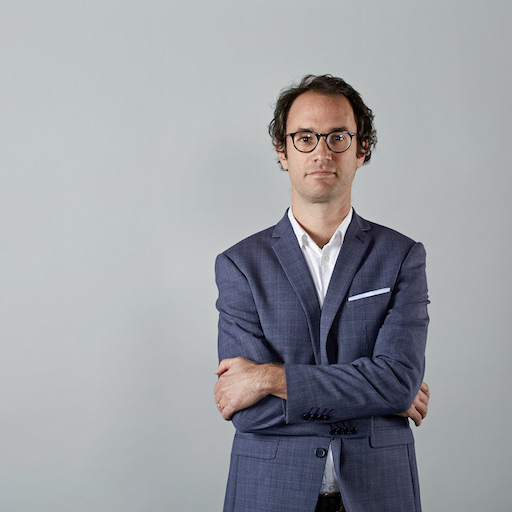Departmental Seminar - Sept 12th

 Stylised calendar data
Stylised calendar data

Fedor ISKHAKOV is Professor of Economics and Australian Research Council (ARC) Future Fellow at the Research School of Economics of the Australian National University. He was a Senior Research Fellow at the ARC Centre of Excellence in Population Ageing Research (CEPAR) for three years before joining the faculty at the Australian National University. Among his editorial duties, he is the co-founder and Editor-in-Chief of the Journal of Open Source Economics (JOSEcon) since 2019, and was a guest co-editor for special issues of the Econometrics Journal University of New South Wales and the Journal of Econometrics (Annals of Econometrics).
He is an applied microeconometrician and a computational economist working in the field of structural estimation of dynamic models of individual and strategic choice, with applications to labour economics, public economics, durable goods markets, household finance, applied industrial organization and dynamic games. His work is internationally recognised and has been awarded a number of important research grants, the latest of which is an ARC Future Fellowship for his project Solving and estimating dynamic models of strategic interaction.
Fedor ISKHAKOV will present a paper, joint with Kenneth Gillingham, Anders Munk-Nielsen, John Rust, and Bertel Schjerning, at our next Departmental Seminar on the theme:
Equilibrium Trade in Automobiles (read paper)
More about Fedor ISKHAKOV and his research
Date: Monday, September 12th - 2:45 PM
Location: Department of Economics - 4th floor - Room H 405
Our next Departmental Seminar will host Christine L. EXLEY(Harvard Business School) on September 19th.
C. de Chaisemartin awarded an ERC CoG grant

 3D illustration of a labyrinth with the word "credibility" at the centre of it
3D illustration of a labyrinth with the word "credibility" at the centre of it
Empirical economics sets out to fill the gap between economic theory and observed data. Relying on case studies and econometrics, it is useful to evaluate and improve public policies in areas such as labour, health, education, family and development economics. But in 1983, Edward Leamer took empirical economists to task: take the “con out of econometrics”! And pursued: “Hardly anyone takes data analysis seriously. Or perhaps more accurately, hardly anyone takes anyone else’s data analysis seriously.” Two decades later research design and the question of replicability in the field had so greatly improved that Joshua D. Angrist and Jörn-Steffen Pischke affirmed that empirical economics had experienced a “credibility revolution”.
Clément de CHAISEMARTIN, who joined the Department’s permanent faculty last year, is not as thoroughly convinced: is the credibility revolution “really credible”?
In July, the European Research Council (ERC) deemed that Clément de CHAISEMARTIN’s proposed research project Completing the revolution: Enhancing the reality, the principles, and the impact of economics' credibility revolution (REALLYCREDIBLE) warranted its full support and awarded it a prestigious ERC Consolidator Grant.
As a reminder, ERC Consolidator Grants are destined to help mi-career researchers consolidate their own teams and carry out innovative projects across all scientific disciplines.
It is the 5th ERC project that the Department has added to its “ongoing projects” in a little over a year! Jean-Marc ROBIN was awarded an “Advanced ERC” grant in December 2021, the arrival last year of Isabelle MEJEAN and Moritz SCHULARICK brought with them their ERC projects TRADENET and SAFEHOUSE, and Ghazala AZMAT was awarded an ERC CoG in March for her project UNEQUALED.
 Specialized in economics of education and health economics, and more generally in the field of public policy evaluation, Clément de Chaisemartin is an internationally renowned econometrician. He was nominated in 2022 for the Cercle des économistes-Le Monde “Meilleur Jeune Économiste” Prize, for his work developing new, more robust and transparent public policy evaluation tools.
Specialized in economics of education and health economics, and more generally in the field of public policy evaluation, Clément de Chaisemartin is an internationally renowned econometrician. He was nominated in 2022 for the Cercle des économistes-Le Monde “Meilleur Jeune Économiste” Prize, for his work developing new, more robust and transparent public policy evaluation tools.
Before joining our permanent faculty, Clément de Chaisemartin was Associate Professor at the University of California Santa Barbara. He is also a researcher affiliated with NBER, J-PAL and the Institute of Public Policy (PPI). He also contributed to the evaluation of boarding schools of excellence, and to the evaluation of the Parler Bambin Programme, two educational policies aimed at promoting the educational success of children from disadvantaged families. In addition to his numerous academic publications (Journal of Labor Economics; The American Economic Review; Econometrica; The Stata Journal; The Review of Economic Studies; American Economic Journal: Applied Economics; Health Economics), he contributes to the evaluation of IPP public policies.
Clément DE CHAISEMARTIN’s project REALLYCREDIBLE aims to “complete the revolution” in empirical economics using a three-stage logic:
- In the first part he will argue that the credibility revolution may not be quite complete yet, and proposes new statistical methods to enhance the credibility of a very substantial proportion of applied economics research.
- In a second part, he wonders whether credibility is even always desirable. The credibility revolution's focus on unbiased estimators is hard to defend, as variance also matters. As Clément de CHAISEMARTIN underscores, most natural experiments are more complex: multiple places set the policy in motion, at different times and with different intensities making it difficult, even impossible, to measure the effect of the policy. In his project REALLYCREDIBLE, he proposes to trade off bias and variance in a principled manner.
- In the third and final part of the project, he will investigate the impact the credibility revolution may have on policymakers and society at large. To do so, he will run a randomized controlled trial to measure the effect of following an online course presenting policy evaluations, on two very different populations: policy makers and members of the general public, focusing on individuals with a low trust in institutions in that second group.
Congratulations to Clément de Chaisemartin !
Read more about the REALLYCREDIBLE project (link to follow)
Departmental Seminar - Sept 5th

 Stylised calendar data
Stylised calendar data

Martin B. HOLM joined the University of Oslo in 2019 as Assistant Professor of Economics just after earning his PhD at the BI Norwegian Business School. He is also a Researcher at Statistics Norway since 2018. Prior to joining the University of Oslo he was a project researcher and economist at the Norges Bank.
His research interests are in macroeconomics, monetary policy and consumption. Although his academic career is relatively young, his research has already garnered international reach and recognition: he is co-investigator in a project Inequality in 3D (with Andreas Fagereng) which was awarded an ERC Starting Grant in 2020. And he has already worked on 4 nationally funded projects by the NRC, including The Effects of Education on the Returns of Wealth for which he is the Principal Investigator.
Martin B. Holm joins us for the inaugural session of our Departmental Seminar Series. He will present a paper, joint with Edmund CRAWLEY and Håkon TRETVOLL, on the theme:
A Parsimonious Model of Idiosyncratic Income (read paper)
More about Martin B. HOLM and his research
Date: MONDAY, September 5th - 2:45 PM
Location: Department of Economics - Room H 405
Our next Departmental Seminar will host Fedor ISKHAKOV (Australian National University) on September 12th.
Bracing for the Ecological Transition

 Cubes stacked incrementally higher with arrow pointing up and leaves sprouting
Cubes stacked incrementally higher with arrow pointing up and leaves sprouting

The Banque de France as part of its partnership with Sciences Po, the Banca d’Italia and the Department, in cooperation with the Centre for Economic Policy Research (CEPR), are calling for papers now for their 5th joint research conference on trends in firm financing, firm organization and firm dynamics.
DEADLINE for papers: September 2nd, 2022
 The conference aims to create a forum for discussion on issues related to the recent patterns of firms’ activity, the organisation of production and firm’s financing, as well as their determinants, consequences and implications for policymaking.
The conference aims to create a forum for discussion on issues related to the recent patterns of firms’ activity, the organisation of production and firm’s financing, as well as their determinants, consequences and implications for policymaking.
The conference will take place in Paris, at Sciences Po, December 1st and 2nd, 2022.
This year we particularly welcome contributions investigating how firms are bracing for the ecological transition:
- How are they adjusting their strategies to policies fostering the ecological and energy transition?
- How are they adapting to increasing climate change risks?
- How are they accommodating consumers’ rising expectations in terms of corporate social and environmental responsibility?
Interested authors should submit a detailed, extended abstract or, preferably, a complete paper, in PDF format, on the conference's platform online (link) by September 2nd, 2022.
*Decisions of acceptance by the programme committee will be announced by the end of September.*
Programme committee: Federico CINGANO (Banca d’Italia), Stéphane GUIBAUD (Sciences Po), Andrea LINARELLO (Banca d’Italia), Noemie LISACK (Banque de France), Thierry MAYER (Sciences Po and CEPR), Jean-Stéphane MÉSONNIER (Banque de France and Sciences Po).
Please note:
- Depending on sanitary constraints in the Fall of 2022, the conference may be held entirely online.
- In case of an in-person event, submitters located overseas will be offered the possibility to present online in order to limit the carbon emissions associated with the conference. Submitters located in Europe are kindly asked to come to Paris and preferably travel by train when possible.
Congratulations to Sergeï GURIEV, appointed Sciences Po Provost !

 Sergeï Guriev, credit Ivan Kuzmin
Sergeï Guriev, credit Ivan Kuzmin
*The original article may be read on Sciences Po's institutional website*
A MILESTONE FOR SCIENCES PO
This appointment should significantly strengthen the synergies between education and research, in line with the greatest international universities. Professor Guriev's mission will be to continue and advance the development of Sciences Po as a world-class research university by maintaining its very high level of teaching, and supporting the development and dissemination of research at Sciences Po, both nationally and internationally. Together with the Sciences Po President, he will actively contribute to the governance of the institution in conjunction with the Directors of the research centres and academic departments, Executive Education, and the various administrative divisions.
The choice of a world-renowned figure also testifies to the outward-looking perspective and international appeal of Sciences Po, where nearly half of the 15,000 students are international, representing more than 160 nationalities.
The appointment of Professor Guriev is the result of an unprecedented selection process. A research committee composed of 12 members from within and outside the institution, representing all of Sciences Po's communities and disciplines, was set up in February under the chairmanship of Marc Lazar, former president of Sciences Po's Academic Board.
A WORLD-RENOWNED ACADEMIC AND ECONOMIST
Advisor to the Russian government in the early 2010s, and Rector of the New Economic School in Moscow, the largest economics university in the country, Sergei Guriev left Russia in 2013 after denouncing the political repression and authoritarianism of Vladimir Putin. Threatened by the Russian regime and exiled to Paris, he joined the Economics Department at Sciences Po, where he became Scientific Director of the Master’s and PhD programmes in 2019. Between 2016 and 2019, Professor Guriev was also Chief Economist of the European Bank for Reconstruction and Development (EBRD). At the beginning of his career, his research work took him to the Massachusetts Institute of Technology (MIT) and Princeton University. He has recently taken up a five-year appointment as Senior Member to the Institut Universitaire de France (IUF), Laureate of the Chair for Fundamental Research.
Mathias Vicherat, Sciences Po President: “I am very pleased with the appointment of Sergei Guriev, a leading academic figure, as Provost. As soon as I became President of Sciences Po, I wanted to create this position to combine research and teaching at the highest level of international excellence. Professor Guriev will, in particular, be responsible for developing the research and training offer on the environmental and digital transitions. He will also assist me in boosting the international appeal of Sciences Po. I would like to warmly thank the 12 members of the selection committee for their work and commitment.”
Professor Sergeï Guriev, Sciences Po Provost: “I am delighted to have been appointed Provost of Sciences Po, an institution that opened its doors to me nearly ten years ago. Thanks to the excellence of its permanent faculty, its staff, and the strength of its alumni network, Sciences Po is a leading institution in the humanities and social sciences. I am honoured to have been chosen to implement the ambitious plans that Mathias Vicherat has set out for the development of Sciences Po. Sciences Po has an influential role to play in the future of Europe and throughout the world .”
Learn more about Sergei Guriev
Nomination of Sergei Guriev as a member of the Institut universitaire de France (read announcement)










